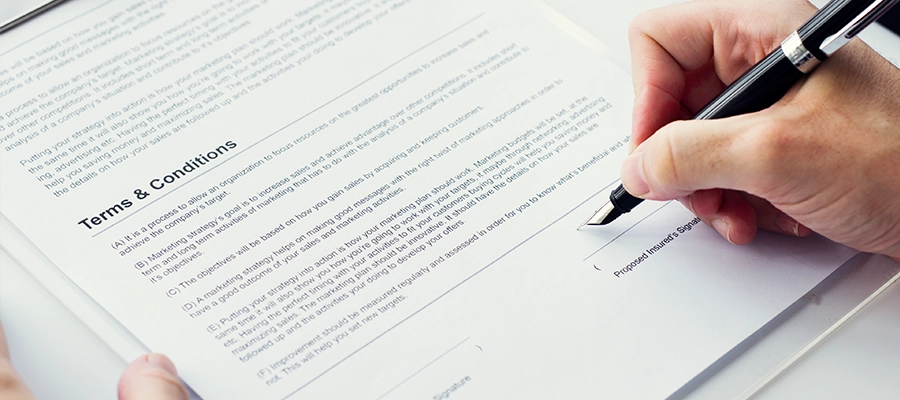Blog Content Overview
Supriyo @ Supriya Chaktraborty & Anr. v. Union of India
For a presentation view, click here!
Factual Matrix
• The nature of the subject matter of the case at hand has been weighed and adjudicated upon around the world across various jurisdictions. In order to observe the case at hand more objectively and illuminate the grounds and discussions which have been placed before the Honourable Supreme Court thus far, we have laid out a summary of the facts of the case:
• The Petitioners identify themselves as gay men and are Indian citizens. Both petitioners, presently aged about 32 and 35 years respectively, have been in a committed relationship for almost a decade.
• On 17.08.2021, the Petitioners held a ceremony in the presence of their families, friends and colleagues.
• However, despite a decade long committed relationship, the Petitioners are unmarried in the eyes of law as the legal regime around recognition and solemnization of marriages excludes marriage between a same-sex couple.
• Despite the ceremony, the Petitioners realized that they are legally incapable of exercising the rights of married individuals and strangers in the eyes of the law, such as securing health insurance which would include their partner, nominating each other for life insurance, mutual funds, PPF, pension scheme, or any other financial instruments. Legally, they do not have the right to inheritance, property, to take medical or end-of-life decisions pertaining to each other.
• In light of the same, the Petitioners filed their PIL before the Hon’ble Supreme Court seeking recognition and solemnization of same-sex marriage.
Questions In Point
The Hon’ble Supreme Court is hearing the matter based involving the following issues:
• Recognition of Same-Sex Marriage: Whether same-sex marriage or non-heterosexual marriage can be recognized and solemnized under the Special Marriage Act, 1954?
• Constitutionality of the Special Marriage Act: Whether the Special Marriage Act, 1954 can be declared to be unconstitutional and violative of Articles 14, 15, 19 and 21 of the Constitution of India to the extent that it does not provide for solemnization of marriage between a same sex couple?
Recognition of same-sex marriage
| Petitioners | UoI |
| • Broad interpretation to be made of the word “spouse” under Special Marriage Act, 1954 (“SMA”) and its meaning should not be confined merely to and be read as “a man and a woman”. Additionally, Section 4, SMA, which refers to a marriage in gender-neutral terms, between ‘any two persons’. However, it was clarified that merely amending the SMA isn’t enough and that a constitutional declaration of marriage, akin to that of the heterogeneous group, is needed. • It is important to remove the 30-day notice period under Section 5 of the SMA on the grounds that it invites unwarranted interference and such notice period violates an individual’s privacy along with their personal and decisional autonomy. • Advocate Abhishek Manu Singhvi, Counsel to the Petitioner stated that “But on the canvas there are two crucial words here. ‘Marriage’ and ‘persons’. ‘Same sex’ is a slight misnomer. The correct word is ‘person’, not ‘same sex’.”* • It was contended that the State could not deny marriage equality on grounds of “impracticality” as the discriminatory laws were created by it • Excluding the LGBTQIA+ community from their right to marry sends a message that it is legitimate to differentiate between the commitments of heterosexual and non-heterosexual couples, by indicating that the latter’s marriages are not as significant as “real” marriages. | • The Supreme Court could not hear this case as it fell under the powers of Parliament. The Respondent’s Counsel argued that there are certain issues which are better left to the discretion of the Parliament. There is no discrimination, no breach of privacy, right of choosing one’s sexual orientation. • It was argued that argued that 160 laws would be impacted in the process of bringing marriage equality. • It was argued that the subject of marriage is in the concurrent list and the possibility of one state agreeing to it and another against it cannot be ruled out. In this scenario, the maintainability of the petition would come into question. • Counsel to the Respondent stated that “Societal acceptance of any relationship in the society is never dependent either on legislation or on judgments. It comes only from within. Let us accept it whether we like to accept it or not.” • It was argued that the legislative intent of the legislature throughout has been a relationship between a biological male and a biological female including Special Marriage Act. • It was argued that the concept of biological man means a biological man and the question of notion does not arise. |
Recognition of same-sex marriage
Constitutionality of the Special Marriage Act
| Petitioners | UoI |
| • The Counsel argued that “The right to marry non-heterosexual unions is implicit in Articles 14, 15, 16, 19 and 21 of the Indian Constitution, especially after the Supreme Court rulings in “Navtej Singh Johar vs. Union of India” and “KS Puttaswamy and Anr. vs. Union of India”. • It was contended that the State could not deny marriage equality on grounds of “impracticality” as the discriminatory laws were created by it. • It is a civil union, as permitted in some countries, is not a solution to what same-sex couples are asking for. civil unions are not an equal alternative and do not address constitutional anomalies presented by excluding non-heterosexual couples from the institution of marriage • Excluding the LGBTQIA+ community from their right to marry sends a message that it is legitimate to differentiate between the commitments of heterosexual and non-heterosexual couples, by indicating that the latter’s marriages are not as significant as “real” marriages. • Adv. Mukul Rohatgi argued that “Gender identity is one of the most fundamental aspects of life and refers to a person’s intrinsic sense of being male, female or transgender or transsexual.” • Inalienable right to privacy must be granted in sanctity of a natural right to privacy in the Constitution as a fundamental right and the soulmate of dignity. Therefore, privacy, dignity go in hand in hand. Dignity is a part of life lived to its fullest under Article 21. | • The lawmakers had a conscious intent to include only heterosexual marriages under the SMA and the said Act’s character and intent cannot be altered. • It was argued that under the SMA, the court cannot give rights to non-heterosexual couples that heterosexual couples don’t have. • The State has a ‘legitimate’ interest in regulating marriages, while citing aspects such as the age of consent, prohibition of bigamy, prescription of prohibited degrees of marriage, judicial separation, and divorce. • While the rulings in Navtej or Shafeen Jahan were monocentric, the present dispute is a “polycentric”, one that will affect several legal provisions, possibly wreaking collateral damage or side effects in its wake. • The Respondent’s Counsel stated that “The question is not right of equality, right of dignity or right of privacy of persons who belong to LGBTQ community. That is first. The question is right of conferment of a socio-legal status and whether that can be done by judicial adjudication. There was no law governing the rights and other rights and other immunities to the LGBTQ community.” • It was argued that the concept of biological man means a biological man and the question of notion does not arise. |
Constitutionality of the Special Marriage Act
Observations by the Hon’ble Supreme Court
| Question | Observations |
| Inclusion of LGBTQ+ in SMA | • Justice D.Y. Chandrachud observed that “Man is not a definition of what your genitals are. It’s far more complex. That’s the point. So even when the Special Marriage Act says man and woman, the very notion of a man and a notion of a woman is not an absolute based on what genitals you have.” • There should be a declaration of the right to marry, then there are two courses of action according to you. Either the court then finds a legislative void in that Parliament has not legislated explicitly to recognize the right of marry, and therefore finding a legislative void, you supplant that deficiency so long as Parliament enacts the law. The other option is, to locate the modalities for implementing that declaration in existing law. • The notice issue is even in a heterosexual marriage, because you are saying that even in a heterosexual marriage, the fact that you have to give a notice and have people object to whether there should be a marriage or not, is unconstitutional. |
| Violation of Fundamental Rights due to marriage inequality | • There are two corresponding rights and perhaps duties and obligations as well. On the one hand the LGBTQ community has or a same sex couple is entitled to say, I have a right to make my own choices. We have our right to make our own choices, to live as we wish together and therefore, that is a part of our dignity our privacy. But equally, society can’t say that. Well, all right. We will recognize that right and we leave you alone. And we will not recognize your relationship. • It’s not enough, in terms of privacy to leave them alone and to make their choices but it is equally important to assert a ride equally, to have the recognition of those social institutions. Because private is an individual concept which allows you to get to the core of your being and to live your life as you want. But equally, each of us are social individuals, social animals, so to speak. And therefore, for society to assert that all right, we’ll leave you alone, or the state will leave you alone. |
Observations by the Hon’ble Supreme Court
Key Takeaways, pending the Supreme Court’s judgment
• Public opinion on various LGBTQ+ rights in India has evolved over the years and verdicts passed by the Judiciary. The progress of laws relating to LGBTQ+ marriage in India has been a complex and evolving journey. While the decriminalization of homosexuality and the recognition of civil partnerships have marked significant milestones, marriage equality remains unrealized. However, the recognition of same-sex marriages has seen progress in certain states.
• The LGBTQIA+ community has averred that it needs an anti-discrimination law that gives them the freedom to forge fulfilling relationships and lives regardless of their gender identity or sexual orientation and places the responsibility for change on the state and society rather than the person. The assertion is that when individuals belonging to the LGBTQ community are granted their complete set of constitutional rights, it is imperative to acknowledge their right to marry the person (and not only a man or a woman) of their choosing.
• However, while there is growing acceptance and support for equality, there is continued opposition to same-sex marriages.
• The arguments made against the petition were on both technical grounds (the jurisdiction of the Supreme Court qua the Parliament to confer rights of a socio-legal status, and the non-joinder of the States for an issue on the concurrent list of the Constitution), and on the grounds of maintainability (considering the provisions of the Transgender Act which already prohibit discrimination, and on the impact on personal laws and their amendment).
• After a hearing that ran for 10 days, the Honourable Supreme Court reserved its verdict on the batch of petitions seeking legal recognition of same-sex marriages.
We Are Problem Solvers. And Take Accountability.
Related Posts


Compliance Calendar – July 2025 (Checklist & Deadlines)
Sync with Google CalendarSync with Apple Calendar As we enter the second half of 2025, staying compliant with various financial,...
Learn More

Conversion of Partnership Firm to LLP – Complete Process
Converting a Partnership Firm to a Limited Liability Partnership (LLP) is a strategic decision that offers several advantages for businesses...
Learn More

Memorandum of Association – MoA Clauses, Format & Types
The Memorandum of Association (MOA) is one of the most essential documents in the company incorporation process, forming the foundation...
Learn More












